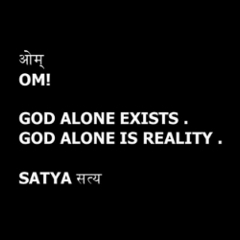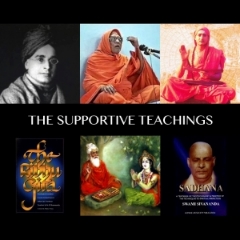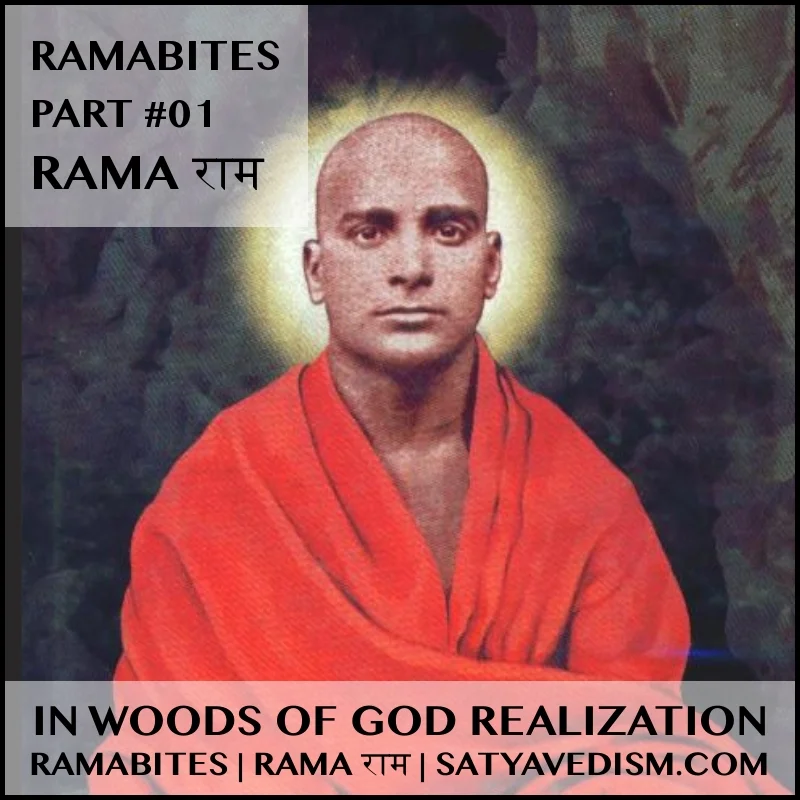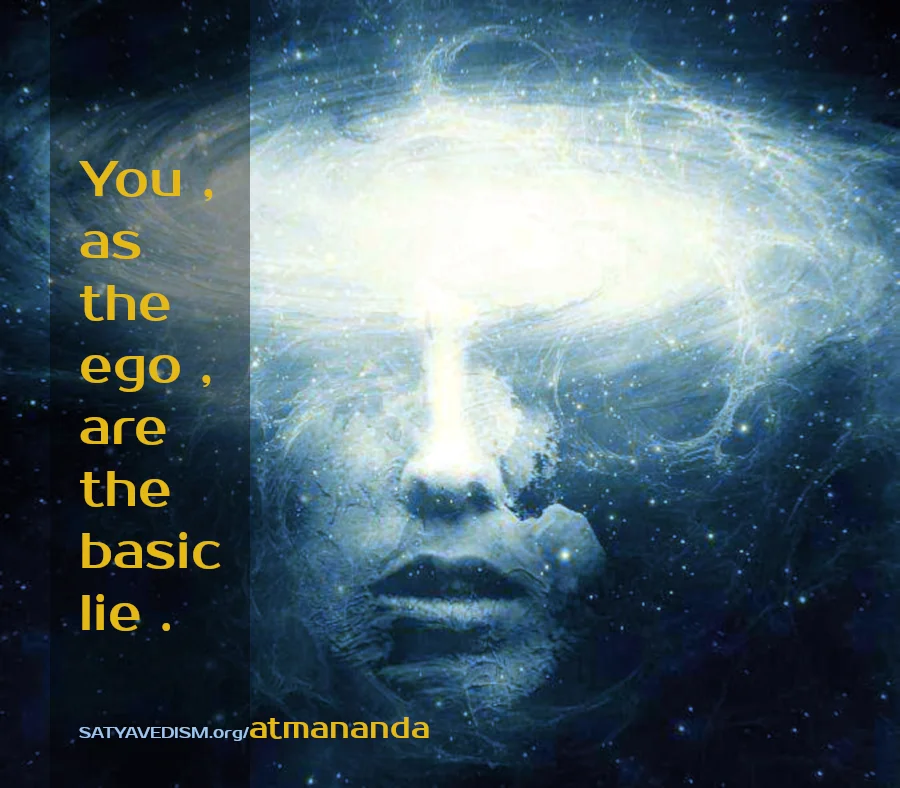BHAGAVADGITA | 6.7-15
| | homeBHAGAVAD GITA | 6.7-15 | SRI ADI SANKARACHARYA
|| THE YOGA OF MEDITATION ( DHYANA YOGA ) ||
|| VERSE 6.7 ||
jitatmanah prasantasya paramatma samahitah
sitosnasukhaduhkhesu tatha manapamanayoh || 6.7 ||
BG 6.7 | The supreme Self of one who has control over the aggregate of one's body and organs , and who is tranquil , becomes manifest . One should be equipoised in the midst of cold and heat , happiness and sorrow , as also honour and dishonour .
|| BHASYA || Parama-atma , the supreme Self ; jita-atmanah , of one who has control over the aggregate of one's body and organs ; prasantasya , who is tranquil , who is a monk with one's internal organ placid ; samahitah , becomes manifest , ie becomes directly manifest as one's own Self .
Moreover , one should be equipoised sita-usna-sukha-duhkhesu , in the midst of cold and heat , happiness and sorrow ; tatha , as also ; mana-apamanayoh in honour and dishonour , adoration and despise .
|| VERSE 6.8 ||
jnana-vijnana-trptatma kuta-stho vijitendriyah
yukta ity ucyate yogi sama-lostrasma-kancanah || 6.8 ||
BG 6.8 | One whose mind is satisfied with knowledge and realization , who is unmoved , who has one's organs under control , is said to be Self-absorbed . The yogi treats equally a lump of earth , a stone and gold .
|| BHASYA || A yogi , jnana-vijnana-trpta-atma , whose mind is satisfied with knowledge and realization — jnana is thorough knowledge of things presented by the scriptures , but vijnana is making those things known from the scriptures a subject of one's own realization just as they have been presented ; one whose mind ( atma ) has become contented ( trpta ) with those jnana and vijnana is jnana-vijnana-trpta-atma — ; kutasthah , who is unmoved , ie who becomes unshakable ; and vijita-indriyah , who has one's organs under control ; one who is of this kind , ucyate, is said to be ; yuktah , Self-absorbed . That yogi sama-losta-asma-kancanah , treats equally a lump of earth , a stone and gold .
Further ,
|| VERSE 6.9 ||
suhrn-mitrary-udasina-madhyastha-dvesya-bandhusu
sadhusv api ca papesu sama-buddhir visisyate || 6.9 ||
BG 6.9 | One excels who has sameness of view with regard to a benefactor , a friend , a foe * , a neutral , an arbiter , the hateful * , a relative , good people and even sinners .
|| BHASYA || The first line of the verse beginning with " benefactor " , etc , is a single compound word .
Visisyate , one excels , ie one is the best among all those who are established in Yoga — ( a different reading is vimucyate , one becomes free ) ; sama-buddhih , who has sameness of view , ie whose mind is not engaged with the question of who one is and what one does ; with regard to a suhrd , benefactor — one who does some good without consideration of return ; mitram , a friend , one who is affectionate ; arih , a foe ; udasinah , a neutral , who sides with nobody ; madhyasthah , an arbiter , who is a wellwisher of two conflicting parties ; dvesyah , the hateful , who is repulsive to oneself ; bandhuh , a relative ; — to all these as also sadhusu , with regard to good people , who follow the scriptures ; api ca , and even ; papesu , sinners , who perform prohibited actions — with regard to all of them .
Therefore , to acquire this excellent result —
|| VERSE 6.10 ||
yogi yunjita satatam atmanam rahasi sthitah
ekaki yata-cittatma nirasir aparigrahah || 6.10 ||
BG 6.10 | A yogi should constantly concentrate one's mind by staying in a solitary place , alone , with mind and body controlled , free from expectations , free from acquisition .
|| BHASYA || A yogi , a meditator ; satatam yunjita , should constantly concentrate ; atmanam , one's mind ; sthitah , by staying ; rahasi , in a solitary place , in mountain caves etc ; ekaki , alone , without any companion ; yata-citta-atma , with mind and body controlled ; nirasih , without expectations , free from hankering ; and aparigrahah , free from acquisition .
From the use of the qualifying words , " in a solitary place " and " alone " , it follows that one has to undertake all these after espousing monasticism . And even after renunciation , one should concentrate one's mind by desisting from all acquisition . This is the meaning . . .
|| VERSE 6.11-12 ||
sucau dese pratisthapya sthiram asanam atmanah
naty-ucchritam nati-nicam cailajina-kusottaram || 6.11 ||
tatraikagram manah krtva yata-cittendriya-kriyah
upavisyasane yunjyad yogam atma-visuddhaye || 6.12 ||
BG 6.11 | Having firmly established in a clean place one's seat , neither too high nor too low , and made of cloth , skin and kusa-grass , placed successively one below the other . **
BG 6.12 | Sitting on that seat , one should concentrate one's mind for the purification of the internal organ , making the mind one-pointed and keeping the actions of the mind and senses under control .
|| BHASYA || Pratisthapya , having established ; sthiram , firmly ; sucau, in a clean ; dese , place , which is solitary , either naturally or through improvement ; atmanah , one's own ; asanam , seat ; na ati ucchritam , neither too high ; na ati nicam , nor even too low ; and that made of caila-ajina-kusa-uttram , cloth , skin , and kusa-grass , placed successively one below the other — the successive arrangement of cloth etc here is in a reverse order to that of the textual reading — .
What follows after thus establishing the seat ?
Upavisya , sitting ; tatra , on that ; asane , seat ; yogam yunjyat , one should concentrate one's mind .
To what purpose should one concentrate one's mind ?
In answer the LORD says : atma-visuddhaye , for the purification of the internal organ .
How ?
Krtva , making ; manah , the mind ; ekagram , one-pointed , by withdrawing it from all objects ; and yata-citta-indriya-kriyah , keeping the actions ( kriyah ) of the mind ( citta ) and senses ( indriya ) under control ( yata ) .
The external seat has been spoken of . Now is being stated how the posture of the body should be :
|| VERSE 6.13-14 ||
samam kaya-siro-grivam dharayann acalam sthirah
sampreksya nasikagram svam disas canavalokayan || 6.13 ||
prasantatma vigata-bhir brahmacari-vrate sthitah
manah samyamya mac-citto yukta asita mat-parah || 6.14 ||
BG 6.13 | Holding the body , head and neck erect and still , being steady , looking at the tip of one's own nose — and not looking around .
BG 6.14 | One should remain seated with a placid mind , free from fear , firm in the vow of celibacy , and with the mind fixed on ME by controlling it through concentration , having ME as the supreme Goal .
|| BHASYA || Dharayan , holding ; kaya-siro-girvam , the body ( torso ) , head and neck ; samam , erect ; and acalam , still — movement is possible for one ( even while ) holding these erect ; therefore it is specified , " still " — ; sthirah , being steady , ie remaining steady ; sampreksya , looking svam nasikagram , at tip of one's own nose — looking at it intently , as it were ; ca , and ; anavalokayan , not looking ; disah , around , ie not glancing now and then in various directions — .
The words " as it were " are to be understood because what is intended here is not an injunction for looking at the tip of one's own nose !
What then ?
It is the fixing the gaze of the eyes by withdrawing it from external objects ; and that is enjoined with a view to concentrating the mind * . If the intention were merely the looking at the tip of the nose , then the mind would remain fixed there itself , not on the Self !
In , " Making the mind fixed in the Self " ( 25 ) , the LORD will speak of concentrating the mind verily on the Self . Therefore , owing to the missing word iva ( as it were ) , it is merely the withdrawal of the gaze that is implied by sampreksya ( looking ) .
Further , prasantatma , with a placid mind , with a mind completely at peace ; vigata-bhih , free from fear sthitah , firm ; brahmacari-vrate , in the vow of celibacy . . . ; besides , mat-cittah , with the mind fixed on ME who am the supreme GOD ; samyamya , by controlling ; manah , the mind , ie by stopping the modifications of the mind ; yuktah , through concentration , ie by becoming concentrated ; asita , one should remain seated ; matparah , with ME as the supreme Goal . . . One not only has one's mind on ME but has ME as one's Goal .
After that , now is being stated the result of Yoga :
|| VERSE 6.15 ||
yunjann evam sadatmanam yogi niyata-manasah
santim nirvana-paramam mat-samstham adhigacchati || 6.15 ||
BG 6.15 | Concentrating the mind thus forever , the yogi of controlled mind achieves the Peace which culminates in Liberation and which abides in ME .
|| BHASYA || Yunjan , concentrating ; atmanam , the mind ; evam , thus , according to the methods shown above ; sada , for ever ; the yogi , niyata-manasah , of controlled mind ; adhi-gacchati , achieves ; santim , the Peace , the indifference to worldly attachments and possessions ; nirvana-paramam , which culminates in Liberation ; and mat-samstham, which abides in ME .
|| NOTES ||
* Ari ( foe ) is one who does harm behind one's back .
* Dvesyah is one who is openly hateful .
* What is sought to be presented here as the primary objective is the concentration of mind . If the gaze be directed outward , then it will result in interrupting that concentration . Therefore the purpose is to first fix the gaze of the eyes within .
** < : Please use nonanimal derived seating . — SV : >
SOURCE | SATYAVEDISM.ORG



































































































